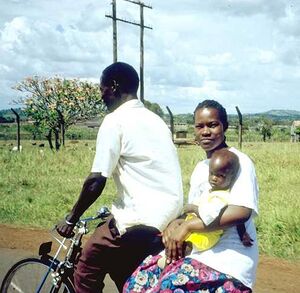Loading map...
{"format":"leaflet","minzoom":false,"maxzoom":false,"limit":99999,"offset":0,"link":"all","sort":[""],"order":[],"headers":"show","mainlabel":"","intro":"","outro":"","searchlabel":"\u003Cspan class=\"mw-ui-button\" style=\"margin: .5em 0;\"\u003EMore results\u003C/span\u003E","default":"","import-annotation":false,"width":"auto","height":"350px","centre":false,"title":"","label":"","icon":"","lines":[],"polygons":[],"circles":[],"rectangles":[],"copycoords":false,"static":false,"zoom":false,"defzoom":14,"layers":["OpenStreetMap"],"image layers":[],"overlays":[],"resizable":false,"fullscreen":false,"scrollwheelzoom":true,"cluster":true,"clustermaxzoom":20,"clusterzoomonclick":true,"clustermaxradius":80,"clusterspiderfy":true,"geojson":"","clicktarget":"","showtitle":true,"hidenamespace":true,"template":"","userparam":"","activeicon":"","pagelabel":false,"ajaxcoordproperty":"","ajaxquery":"","locations":[{"text":"\u003Cb\u003E\u003Ca href=\"/User:ETALO\" title=\"User:ETALO\"\u003EETALO\u003C/a\u003E\u003C/b\u003E","title":"ETALO","link":"","lat":1.5333555555555999916350629064254462718963623046875,"lon":32.2166583333330009963901829905807971954345703125,"icon":""},{"text":"\u003Cb\u003E\u003Ca href=\"/User:ETALO\" title=\"User:ETALO\"\u003EETALO\u003C/a\u003E\u003C/b\u003E","title":"ETALO","link":"","lat":61.0666916666669976621051318943500518798828125,"lon":-107.99170833332999563936027698218822479248046875,"icon":""},{"text":"\u003Cb\u003E\u003Ca href=\"/User:ETALO\" title=\"User:ETALO\"\u003EETALO\u003C/a\u003E\u003C/b\u003E","title":"ETALO","link":"","lat":39.78373055555599790977794327773153781890869140625,"lon":-100.4458833333300020740352920256555080413818359375,"icon":""},{"text":"\u003Cb\u003E\u003Ca href=\"/User:ETALO\" title=\"User:ETALO\"\u003EETALO\u003C/a\u003E\u003C/b\u003E","title":"ETALO","link":"","lat":10.6611666666670004133266047574579715728759765625,"lon":122.5909583333299934793103602714836597442626953125,"icon":""},{"text":"\u003Cb\u003E\u003Ca href=\"/KAFRED\" title=\"KAFRED\"\u003EKAFRED\u003C/a\u003E\u003C/b\u003E","title":"KAFRED","link":"","lat":2.084255555555599936923272252897731959819793701171875,"lon":33.7644166666670031418107100762426853179931640625,"icon":""},{"text":"\u003Cb\u003E\u003Ca href=\"/User:Medical_Makers\" title=\"User:Medical Makers\"\u003EMedical Makers\u003C/a\u003E\u003C/b\u003E","title":"Medical Makers","link":"","lat":9.0643305555555997443661908619105815887451171875,"lon":7.4892972222222002898206483223475515842437744140625,"icon":""},{"text":"\u003Cb\u003E\u003Ca href=\"/User:Medical_Makers\" title=\"User:Medical Makers\"\u003EMedical Makers\u003C/a\u003E\u003C/b\u003E","title":"Medical Makers","link":"","lat":0.317713888888890017003774346449063159525394439697265625,"lon":32.58135277777800098419902496971189975738525390625,"icon":""},{"text":"\u003Cb\u003E\u003Ca href=\"/User:Medical_Makers\" title=\"User:Medical Makers\"\u003EMedical Makers\u003C/a\u003E\u003C/b\u003E","title":"Medical Makers","link":"","lat":-0.48181388888888998511816907921456731855869293212890625,"lon":30.1686861111110005140290013514459133148193359375,"icon":""},{"text":"\u003Cb\u003E\u003Ca href=\"/User:Medical_Makers\" title=\"User:Medical Makers\"\u003EMedical Makers\u003C/a\u003E\u003C/b\u003E","title":"Medical Makers","link":"","lat":47.6038333333330001551075838506221771240234375,"lon":-122.3300611111099982508676475845277309417724609375,"icon":""},{"text":"\u003Cb\u003E\u003Ca href=\"/User:Medical_Makers\" title=\"User:Medical Makers\"\u003EMedical Makers\u003C/a\u003E\u003C/b\u003E","title":"Medical Makers","link":"","lat":43.653480555556001263539656065404415130615234375,"lon":-79.38393333333300461163162253797054290771484375,"icon":""},{"text":"\u003Cb\u003E\u003Ca href=\"/User:Medical_Makers\" title=\"User:Medical Makers\"\u003EMedical Makers\u003C/a\u003E\u003C/b\u003E","title":"Medical Makers","link":"","lat":5.96141111111109989195711023057810962200164794921875,"lon":10.151650000000000062527760746888816356658935546875,"icon":""},{"text":"\u003Cb\u003E\u003Ca href=\"/User:Medical_Makers\" title=\"User:Medical Makers\"\u003EMedical Makers\u003C/a\u003E\u003C/b\u003E","title":"Medical Makers","link":"","lat":-2.5055833333333001888831859105266630649566650390625,"lon":28.859488888889000435256093624047935009002685546875,"icon":""},{"text":"\u003Cb\u003E\u003Ca href=\"/User:Medical_Makers\" title=\"User:Medical Makers\"\u003EMedical Makers\u003C/a\u003E\u003C/b\u003E","title":"Medical Makers","link":"","lat":9.035827777777800662306617596186697483062744140625,"lon":38.75241388888900218034905265085399150848388671875,"icon":""},{"text":"\u003Cb\u003E\u003Ca href=\"/User:Medical_Makers\" title=\"User:Medical Makers\"\u003EMedical Makers\u003C/a\u003E\u003C/b\u003E","title":"Medical Makers","link":"","lat":53.34938055555600300294827320612967014312744140625,"lon":-6.26055833333330014056627987883985042572021484375,"icon":""},{"text":"\u003Cb\u003E\u003Ca href=\"/User:Medical_Makers\" title=\"User:Medical Makers\"\u003EMedical Makers\u003C/a\u003E\u003C/b\u003E","title":"Medical Makers","link":"","lat":40.1906333333329968127145548351109027862548828125,"lon":116.41214444444000264411442913115024566650390625,"icon":""},{"text":"\u003Cb\u003E\u003Ca href=\"/User:Medical_Makers\" title=\"User:Medical Makers\"\u003EMedical Makers\u003C/a\u003E\u003C/b\u003E","title":"Medical Makers","link":"","lat":-1.3026138888889000622128833128954283893108367919921875,"lon":36.8288416666670030963359749875962734222412109375,"icon":""},{"text":"\u003Cb\u003E\u003Ca href=\"/Nets_for_Uganda:_Local_Manufacturing_for_Malaria_Prevention\" title=\"Nets for Uganda: Local Manufacturing for Malaria Prevention\"\u003ENets for Uganda: Local Manufacturing for Malaria Prevention\u003C/a\u003E\u003C/b\u003E","title":"Nets for Uganda: Local Manufacturing for Malaria Prevention","link":"","lat":1.5333555555555999916350629064254462718963623046875,"lon":32.2166583333330009963901829905807971954345703125,"icon":""},{"text":"\u003Cb\u003E\u003Ca href=\"/Solar_drying_in_Uganda\" title=\"Solar drying in Uganda\"\u003ESolar drying in Uganda\u003C/a\u003E\u003C/b\u003E","title":"Solar drying in Uganda","link":"","lat":2.084255555555599936923272252897731959819793701171875,"lon":33.7644166666670031418107100762426853179931640625,"icon":""},{"text":"\u003Cb\u003E\u003Ca href=\"/Uganda_community_action\" title=\"Uganda community action\"\u003EUganda community action\u003C/a\u003E\u003C/b\u003E","title":"Uganda community action","link":"","lat":1.20639444444439991599438144476152956485748291015625,"lon":34.20796666666699792358485865406692028045654296875,"icon":""},{"text":"\u003Cb\u003E\u003Ca href=\"/Uganda_community_activism_news\" title=\"Uganda community activism news\"\u003EUganda community activism news\u003C/a\u003E\u003C/b\u003E","title":"Uganda community activism news","link":"","lat":1.20639444444439991599438144476152956485748291015625,"lon":34.20796666666699792358485865406692028045654296875,"icon":""},{"text":"\u003Cb\u003E\u003Ca href=\"/Water_supply_in_Busukuma,_Uganda\" title=\"Water supply in Busukuma, Uganda\"\u003EWater supply in Busukuma, Uganda\u003C/a\u003E\u003C/b\u003E","title":"Water supply in Busukuma, Uganda","link":"","lat":2.084255555555599936923272252897731959819793701171875,"lon":33.7644166666670031418107100762426853179931640625,"icon":""}],"imageLayers":[]}

 How Climate Impacts Mental Health in Africa, strongminds.org (Apr 10, 2024)
How Climate Impacts Mental Health in Africa, strongminds.org (Apr 10, 2024)  Food forests grown by Nile Basin farmers restore wetlands and bring back a turtle, news.mongabay.com (Feb 28, 2024)
Food forests grown by Nile Basin farmers restore wetlands and bring back a turtle, news.mongabay.com (Feb 28, 2024)  Climate change: Saving Uganda's mountain gorillas, BBC News (Dec 01, 2023)
Climate change: Saving Uganda's mountain gorillas, BBC News (Dec 01, 2023) 


